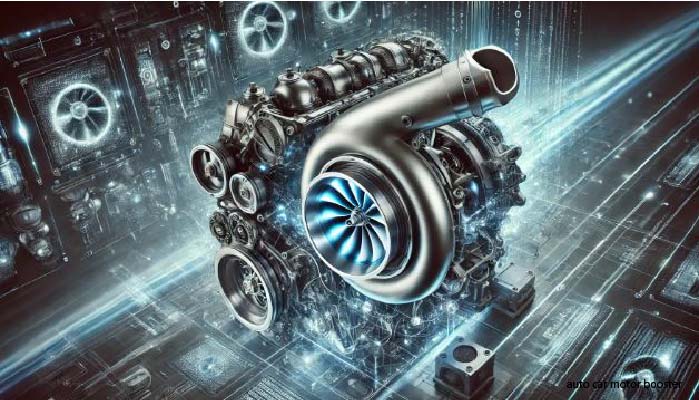
Introduction
The future of turbocharging technology is bright and filled with possibilities. As the automotive industry pushes toward sustainability and performance, turbocharging has become a critical part of the equation. From reducing emissions to improving engine efficiency, turbochargers are evolving rapidly. Key advancements like electric turbochargers, hybrid technology, and variable geometry are shaping what lies ahead.
The Evolution of Turbocharging
Turbocharging technology has transformed the way internal combustion engines (ICEs) function. In the past, turbochargers were primarily used in performance vehicles, but today, they are found in everything from family cars to commercial trucks. The basic function of a turbocharger is to use exhaust gases to drive a turbine, which forces more air into the engine, resulting in more power.
The Shift Toward Efficiency
In recent years, the focus has shifted from raw power output to efficiency and emission control. With stricter global emissions regulations such as Euro 7 and increasing demand for fuel efficiency, automakers have turned to downsizing engines while using turbochargers to maintain performance. This trend will continue as engine downsizing becomes more prominent, particularly in hybrid and electric vehicles.
Key Innovations Driving the Future
As technology advances, turbocharging is evolving to meet the needs of modern vehicles. The future of turbocharging is not just about making engines more powerful, but also about making them smarter and more sustainable.
Hybrid Turbochargers
One of the most exciting developments is the rise of hybrid turbochargers. These systems combine traditional exhaust-driven turbochargers with electric motors. The electric motor can spool the turbo at low engine speeds, eliminating turbo lag and providing a seamless power boost. This technology is particularly beneficial for hybrid vehicles, where combining electric and combustion power improves overall performance and fuel efficiency.
Hybrid turbochargers are expected to play a significant role in the future of high-performance vehicles, offering both power and fuel savings.
Electric Turbochargers
With the rise of electric vehicles (EVs), traditional turbochargers face new challenges. Electric turbochargers solve this issue by using the vehicle’s electrical system to provide the boost. Unlike conventional turbos, electric turbochargers do not rely on exhaust gases and can operate at full capacity regardless of engine load. This results in a more consistent performance and improved fuel efficiency.
Major automakers are investing heavily in e-turbo technology as it not only boosts power but also helps meet emission standards.
Variable Geometry Turbochargers
Another key innovation is variable geometry turbochargers (VGT), which adjust the turbine’s geometry to match engine speed and load. This results in better control over airflow, which translates to improved performance at both low and high engine speeds. VGT technology is already used in many modern diesel engines and is expected to become more common in gasoline engines.
The ability to fine-tune the turbocharger’s behavior makes it ideal for fuel economy improvements and emission reductions, which are critical for future automotive regulations.
Environmental Benefits of Advanced Turbocharging
The environmental impact of turbocharging is a key driver of its innovation. As automakers seek to reduce their carbon footprint, advanced turbochargers help achieve lower emissions and better fuel efficiency.
By enabling engine downsizing, turbochargers allow smaller engines to produce the same power as larger, less efficient engines. This directly reduces fuel consumption, which in turn leads to fewer greenhouse gas emissions. The introduction of electric turbochargers and hybrid systems will further enhance these benefits, making vehicles both cleaner and more powerful.
Challenges in Implementing Future Turbocharging Technology
While the future of turbocharging looks promising, several challenges remain. First, the cost of developing and integrating these advanced systems is high. Hybrid and electric turbochargers require complex control systems and components, which can increase the cost of vehicles.
Another challenge is the durability of turbochargers in extreme conditions. Turbochargers operate at extremely high temperatures and speeds, which can lead to wear and tear over time. Ensuring that future turbochargers are reliable and long-lasting will be essential for widespread adoption.
Additionally, while turbocharging is helping to reduce emissions, it is not a complete solution to the world’s environmental challenges. The automotive industry must continue to innovate in other areas, such as battery technology and hydrogen power, to achieve a truly sustainable future.
Conclusion
The future of turbocharging technology is one of innovation and sustainability. As automakers strive to meet the demands of fuel efficiency, emission control, and performance, turbochargers will play an increasingly important role. From hybrid systems to electric turbochargers and variable geometry technology, the advancements in turbocharging will shape the future of both traditional and electric vehicles.
The focus will remain on creating more efficient, powerful, and environmentally friendly solutions that can meet the needs of a rapidly evolving industry.
FAQs
1. What is the benefit of hybrid turbochargers?
Hybrid turbochargers eliminate turbo lag by using an electric motor to provide an instant boost, making the engine more responsive and fuel-efficient.
2. How do electric turbochargers work in electric vehicles?
Electric turbochargers are powered by the vehicle’s electrical system, providing a consistent boost without relying on exhaust gases. This improves performance and reduces fuel consumption.
3. Are turbochargers environmentally friendly?
Yes, advanced turbocharging technology helps reduce emissions and improve fuel efficiency by enabling engine downsizing, which consumes less fuel and produces fewer greenhouse gases.
4. What is the biggest challenge with future turbochargers?
The biggest challenges are cost and durability. Developing advanced systems like electric and hybrid turbos is expensive, and ensuring they can withstand extreme conditions is crucial.
5. Will turbochargers still be relevant with the rise of electric vehicles?
Yes, electric turbochargers will play a key role in enhancing EV performance, making turbocharging technology relevant even in fully electric vehicles.
If Like This Article Visit Our Website. Collect From Wekiapedia